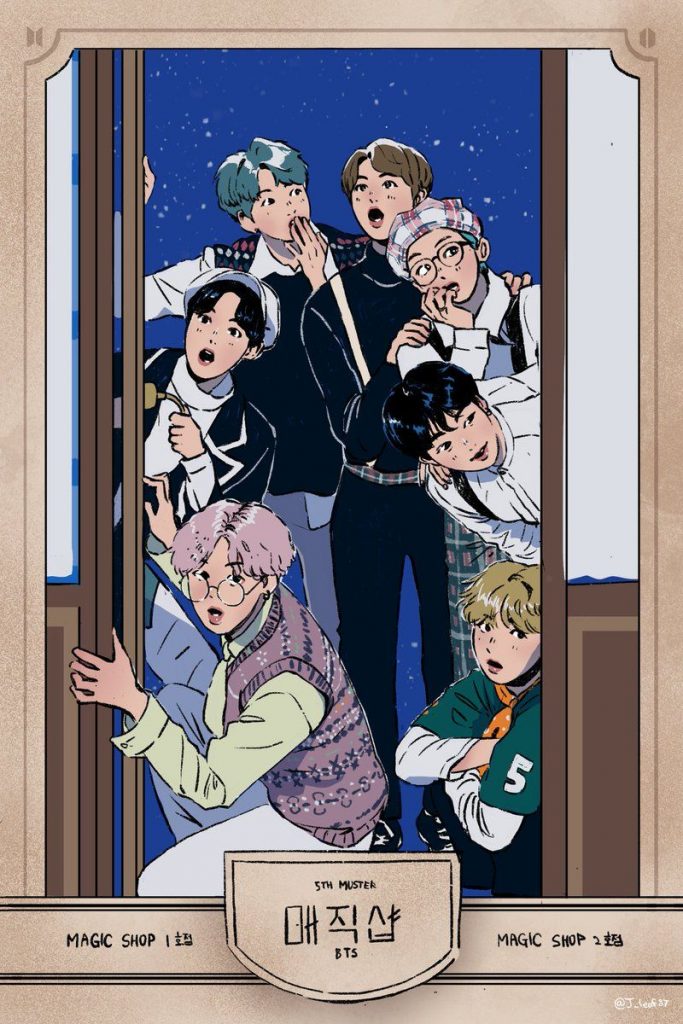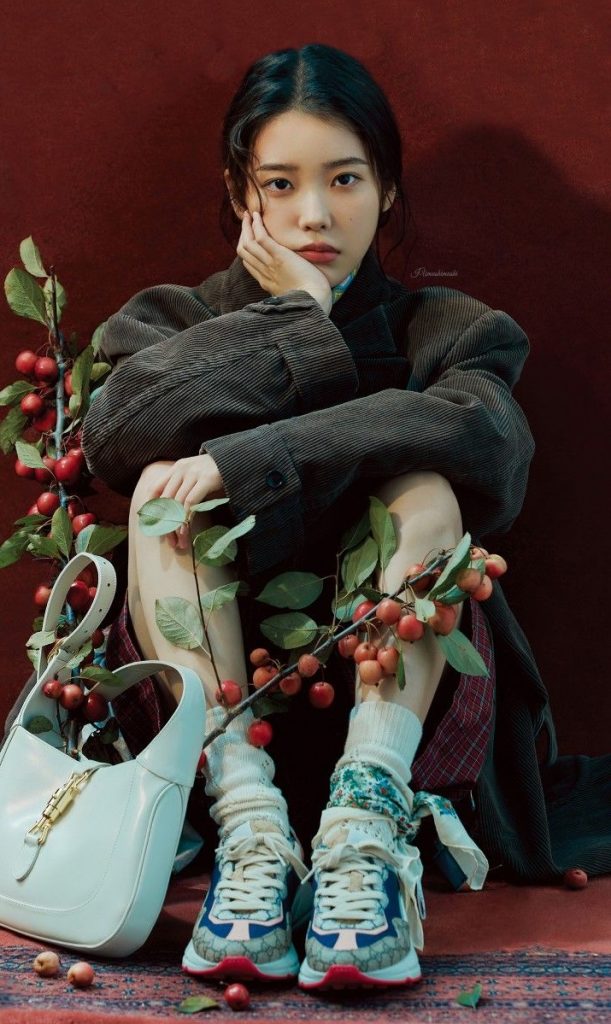By Usraat Fahmidah
How K-pop stans found comfort in music during the pandemic
Right in the middle of the pandemic, I fell into the BTS rabbit hole like millions of other people and entered what the fans call “Magic Shop ”. I thought it was just one video, and it wasn’t going to do any harm. It started at first with “In The Soop”, then patiently waiting for “Run BTS” every Tuesday, and then obsessively piecing their HYYH era story.
If you are not familiar with BTS, chances are you won’t get any of the references. But if you are an ARMY, you know what I am saying. The only thing that got me through that tumultuous period of pandemic is quite frankly— BTS.
The game show that had me wheezing at night because I couldn’t sleep from the anxiety of going through long periods of lockdowns, the music that put me in a better mood after bouts of feeling depressed from the uncertainty. BTS provided me with comfort, and even more so while recovering and adjusting to life after the pandemic.

This wasn’t just the case for me. This was the case for millions of other people who found comfort through K-pop.
K-pop idols have always led the conversation about mental health. They’ve been candid about their mental health whether it’s through their music, interviews or interactions with fans. And the conversation has become more prominent in recent years with the tragic death of SHINee’s Jonghyun, f(x)’s Sulli and KARA’s Goo Hara. The news came as a shock to fans and stirred up a conversation about mental health advocacy among fans worldwide.
While the Western media has been fixated on the narrative of toxicity of K-pop, the K-pop idols have been leading the conversation and putting in effort from their side to help out with this mental health crisis
In 2014, famous singer IU bravely opened up about her struggles with eating disorder and anxiety. She talked about her struggles with stardom, feeling intense self-hate and anxiety during a time when mental health was still considered a taboo topic. We have come a long way since then.
While the western media has been fixated on the narrative of toxicity of K-pop, the K-pop idols have been leading the conversation and putting in effort from their side to help out with this mental health crisis. Eric Nam and his brother came up with a platform, “Mindset”, where listeners can peek into the real life of idols. The platform features personal and unfiltered stories from celebrities like Jay B, Eric Nam, Keshi, Tablo, Julia Michaels, WOOSUNG and more.

Idols tend to share their struggles through their music. IU shared in an interview how “Through the Night” was inspired by her feeling to share sincere emotions about her struggles, and her struggle with insomnia. BTS’ SUGA shares a big chunk of his fears during his teen years in his mixtape “AGUST D”. His struggles with mental health, social anxiety, and depression are reflected in the song lyrics. He even goes on to share some of his darkest moments explicitly in the song “The Last”:
“The doctor asks me if I’ve (censored)
I answered without any hesitation that I have”
The censored part references how it’s a taboo to talk about mental health. And he shares how he has thought about ending his life. AGUST D is baring his soul in this song.
This sort of vulnerability fosters a safe space in K-pop fandom that allows fans to process their own thoughts and emotions. In recent years, K-pop idols are more vocal about their mental health lending their fans the courage to embrace emotional vulnerability.
Jannatul Ferdous Mim, who is currently studying in Govt. City College in Chittagong, shared about how she discovered BTS in early 2020 through RM’s speech where he famously said, “We have learned to love ourselves, so now I urge you to ‘speak yourself’” while addressing mental health concerns to the UN. She shared how “Spring Day” comforts her on a bad day. “There are a lot of times when I am upset for some reason but as soon as I see BTS, it gives me a reason to smile. They taught me to love myself. I can say I’m still in the process of learning and improving myself.”
Not just this, fans’ healthy relationship with their idols helps have a positive impact on their lives in study, career and aspirations.
Andeez Ziauddin, a current Bangladeshi student at Seoul National University, shares, “I would have never thought about studying at SNU before getting to know BTS. But here I am studying in Seoul after getting inspired by Bang PD who gave my favorite men, BTS, a platform.”
Although celebrities in the west have been open about their mental health struggles, it doesn’t hold a candle to the influence K-idols have on their fans.
K-pop idols particularly have a more personal and unique relationship with their fans. Take Kim Namjoon of BTS for example. When an ARMY on WeVerse— a platform for fans to communicate directly with their idols— shared about her mental health struggles of not feeling enough, Namjoon replied with a heart-felt note to the ARMY. “It’s hard to admit but we can’t solve every kind of problem. Sometimes it just feels too much to bear myself. But, when things are too tough, I think of the faces who I love, and who love me, like you. S**t truly happens and it might not change. But, it’s okay to fail and tumble. I hope we can stay strong and fly together, whatever’s underneath the ground”, the note read.
This is just one example of how intimate relationships between idols and their fanbase is. And this is just one aspect of the “Magic Shop”. Fandoms have also proven to be a huge place for community support for those seeking it.
When it comes to coping with mental health struggles, community support is unparalleled. And for these K-pop fans, having that sense of belonging and space for self-expression is everything.
Last month, an ARMY friend shared how her first therapy experience left her feeling loved and more connected to the ARMY community. After months of struggling to access mental health care for a multitude of reasons, she finally got an appointment with a therapist. After she returned, she shared with me how she talked about BTS, a significant role model in her life, to her therapist. And in return, the therapist had replied to her that it wasn’t unusual, and a lot of patients come to him and share how BTS comforts them. She was in awe of how BTS and the community is helping more young people like her, and developed a deeper appreciation for the community.
The line between admiration and obsession can easily be blurred, but it’s possible to have a healthy relationship

Kinnori Duhita, a medical student and BTS fan, shares, “Part of me misses that fangirl version of me because she still inspires me.” As life got busier, she eventually grew out of the fangirl phase but still cherises her old days as an ARMY.
“BTS was more of an escape, when I found them in 2017 through a music video. It felt like I had idols to look up to, and listening to their music gave me a new purpose.” She shares how BTS had a huge positive impact on her. “I started to do well academically. But the most dramatic change for my 15 year old self was how my relationship with food and exercise improved. Looking at their energy, dance routine and hard work inspired me to work out and it was so fun to jam to their music!”
“BTS always held a soft spot for me because those seven boys changed my life and were there for me when very few people understood me”—Kinnori emphasized that BTS is still an idol figure in her life.
If anything, K-pop is only pushing the subject of mental health conversations forward among its young listeners. This is more important than ever when an alarming number of young people around the world are reported to be grappling with mental health issues and the stigmas surrounding it.













